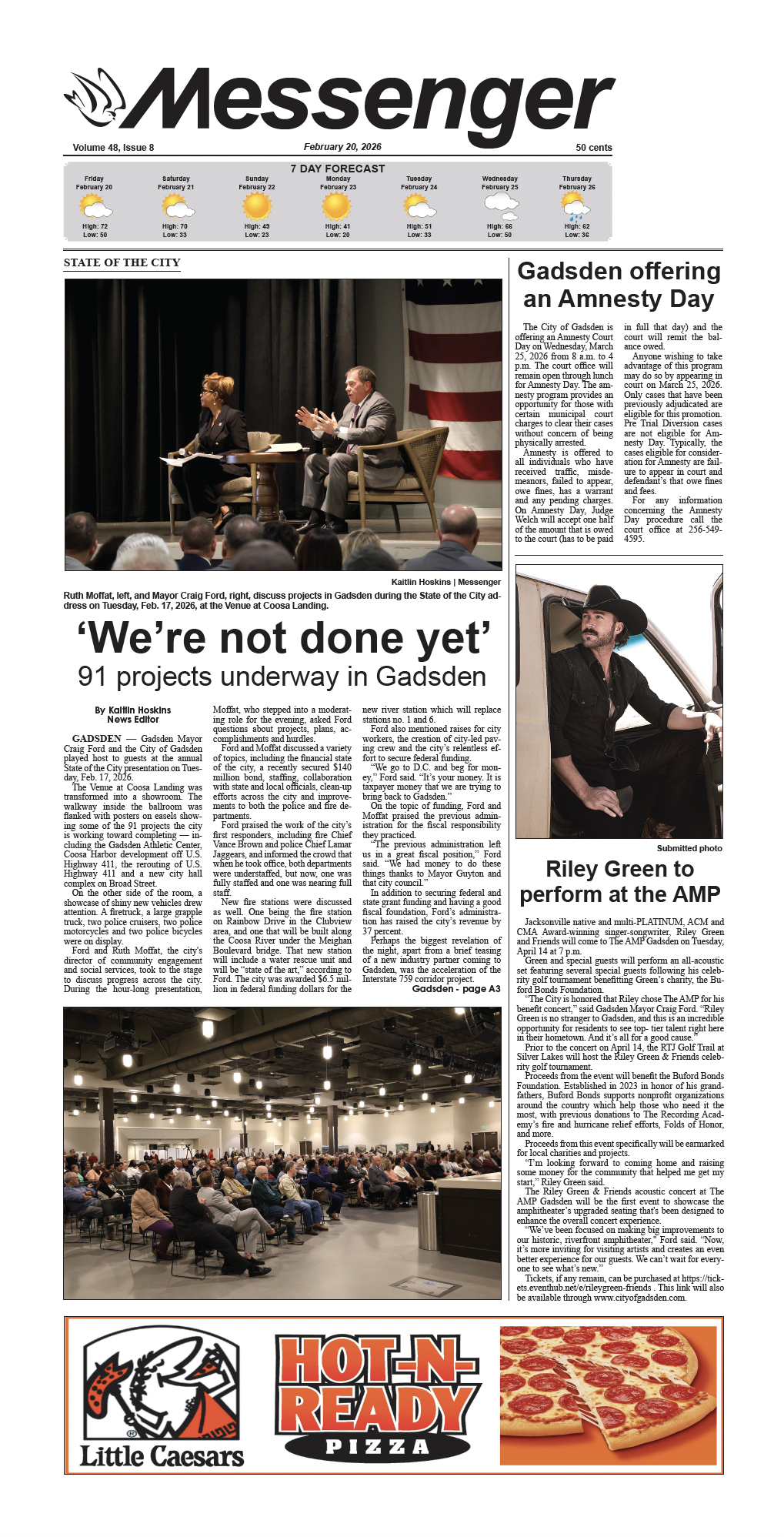This coming Tuesday and Wednesday, the general public is invited to join the Trail of Tears bike tour that is now winding through Alabama. It started June 2 at Ocmulgee National Monument in Macon Georgia, and will end in Okmulgee, Okla.
The bike tour was developed to commemorate, educate, and communicate about the Muscogee (Creek) removals as well as the history in the ancestral homelands in the Southeastern United States. The tour honors the memory of the Muscogee (Creek) ancestors who either survived or did not survive the journey. The ride is retracing some of the trails that brought the Muscogee Creeks to Oklahoma more than 150 years ago.
Muscogee (Creek) Nation Museum Cultural Center, & Archives director and curator John Beaver and assistant director Justin Giles are spearheading the event but also are collaborating with many agencies such as The National Park Service, the Alabama Historical Commission, the Alabama Chapter Trail of Tears Association, the Etowah Historical Society, National Museum of the American Indian, Americans for Indian Opportunity and Let’s Move!
Beaver will be the lead rider in the Ocmulgee to Okmulgee: Muscogee (Creek) Nation Trail of Tears Bicycle Tour as he tells the stories of various stops along the way, while Justin Giles will be filming the ride and sharing stories. Together, they will present a “living classroom” experience that will be shared in real time blogs online and later in the museum.
“I figure we will go 50-70 miles per day,” Beaver said. He called the trip an “emotional ride.”
Some of the sites to be visited tie into the Creeks ancient history before the Muscogee became entwined with the British, the Spanish, the French and, eventually, the United States.
The public is invited to join in the bike tour or to make the journey by automobile. Local riders are welcome to join for any distance.
From the Ocmulgee Mounds, the tour has already progress from Georgia to Alabama, heading west to Fort Mitchell across portions of the Old Federal Road. It will continue west to Montgomery, Fort Toulouse and Horseshoe Bend.
Beginning on the morning of June 12, the route will move on the old Creek Path from Alexander City through Sylacauga, Talladega, Ohatchee and Attalla. There were four different Trail of Tears groups that went through this area on up to Guntersville. Prior to that, the area was a hot bed for the Creek War.
On Wednesday the 13th, a welcoming will be at Attalla at Junction Park, located at 5 Points across the viaduct from the downtown area.
The National Parks Service will be on hand, along with City of Attalla Mayor Jane Phillips, Alabama Chapter Trail of Tears President Gail King, Etowah County Tourism Director Hugh Stump and others.
At 9:30 a.m., Beaver and those wishing to follow him on bikes will head up U.S. Hwy. 11 to the Fort Payne Removal Cabin, located about two blocks from the city courthouse. A National Parks Service sign indicates the site.
Oliver Baxter of Landmark will give a brief history of the cabin site and provide details about the Creeks and Cherokees that were relocated to Oklahoma. The National Parks Service will be on hand to welcome everyone.
From that point, the Muscogee Creeks will bicycle their way to the little community of Lebanon, where the Benge Attachment began its removal out west. Just recently the Alabama Chapter Trail of Tears Association was able to have the National Parks Service install signage on the entire road trail.
The public is encouraged to drive the route and follow the beautiful brown signs. The project was a culmination of many years of hard work.
From Guntersville, Beaver will travel on one of the removal routes to Decatur and then visit Oakville Indian Mounds near Moulton. He will ride all the way to Tuscumbia into Tennessee and take old military routes into Arkansas, arriving at Fort Gibson as the western terminal of the forced march.
“Stories can be shared in many ways,” explained Beaver, “but we want to show our people and others that this can be about learning history through activity.”
As a member of the Creek Nation, Beaver said that they are still strong and thriving. Beaver will have to be plenty strong over the next three weeks as he rides his bicycle 1,080 miles to Oklahoma.
The bike ride is planned to be annual event, intending to grow larger each year.




